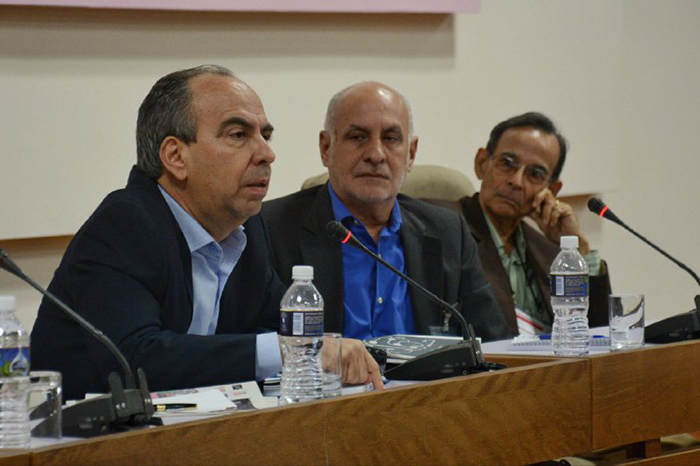
Havana, Nov 3.- The afternoon session of the XI Congress of the Union of Journalists of Cuba (UPEC), which takes place at the Convention Palace, was dedicated this Thursday to reflecting on the deficiencies and challenges facing the Cuban press today. of this capital.
Freddy Moros, journalist, noted as some of the weaknesses of the media system in the country the slowness in reporting and offering responses to public concerns.
He emphasized the importance of transparency and that the Communist Party of Cuba and public and government institutions understand the essential role that timely information has for the people.
For Moros, these situations have deterred young people who study journalism.
He said that youth have to see this profession as a daily adventure to create innovative jobs.
José Alejandro Rodríguez, journalist, pointed out that Cuba and its Revolution have not advanced enough in journalism.
The exodus of our talents, who could be considered paradigms of the Cuban press, is worrying, stressed José Martí, who is also a National Journalism Award winner.
We have to know what journalism we want for Cuba and that can only be achieved by following the plot in the management of public administration and not giving priority to meetings and reports, he expressed.
He emphasized that the media headlines are not the leaders, but the people whose stories have yet to be told and who are in the dark areas of society.
Ayose García, journalist and director of the newspaper Girón de Matanzas, commented that this medium dreams of journalism that is closer to the reality of Cuba and its people, through the young talent that comes to its newsroom.
This is a job that requires, above all, vocation and being consistent with oneself and with those around us, he asserted.
García highlighted the importance of ethics and professionalization as mechanisms for creating consensus and to eradicate the ghosts of censorship and mediations.
Arleen Rodríguez, journalist and deputy director of Ideas Multimedios, noted that in Cuba bureaucratic language has been transferred to media content and the real absence of criticism on the platforms is evident.
We lack newsrooms that are the soul of the media to strengthen internal relations between its workers and, collectively, achieve the change of mentality that Cuban journalism deserves, said Rodríguez.
Victor Hugo Leyva, a journalist from Santiago, proposed the creation of an award that recognizes the work of the Cuban Written Press, as well as giving the career's professors the opportunity to participate in contests.
Rogelio Polanco, member of the Secretariat of the Central Committee of the PCC and head of the Ideological Department, assured the delegates to the congress that the problems that concern the Cuban press are also the problems of the Revolution.
If we are here it is thanks, in large part, to those professionals in the sector who daily defeat enemy campaigns, which try to break the human will, he noted in his speech.
Polanco stated that in Cuba there is decent and problematic journalism that brings to light the deficiencies of the State, society and all the institutions in the country and stated that there is a will to resolve them on the part of the country's leadership and with the support of the PCC.
The word surrender does not fit among the journalists of the Largest of the Antilles, he stated.
Finally, the participants in the meeting approved the Statutes and the Code of Ethics of the UPEC.
The XI Congress of the Union of Journalists of Cuba will take place until November 3, when its new presidency will be announced and the organization's action plan until 2028 will be adopted. (Text and photo: ACN)